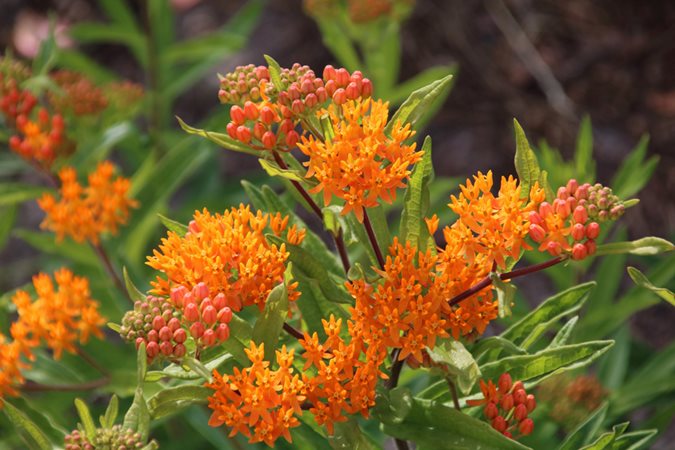
When considering planting your Ocean Friendly Garden, please be aware:
Non-native and native milkweed along the coast potentially disrupts the western monarch migration
Understanding the importance of native plants for western monarchs is easier if you know a bit about their migration and breeding habits: western monarch butterflies spend the winter along the coast of California. When temperatures rise in the spring they migrate throughout the states west of the Rocky Mountains. It is during this time that they mate and produce offspring. This is where milkweed plays a key role in their life cycle as it is the only food source for monarch caterpillars. In the fall they return to coastal California to overwinter and the cycle continues.
Historically, milkweed was rare along the California coast and the butterflies would migrate inland in search of the plant, relying on other native plants as a nectar source along the way.
Further complicating the western monarch story is non-native milkweed, (sold in most retail nurseries) like tropical milkweed, along the coast. Tropical milkweed has been implicated in higher parasite loads of the protozoan OE (Ophryocystis elektroscirrha), which is transferred to the monarch caterpillars and eventually their offspring. OE can be fatal to monarchs, or it can make them unable to fly long distances to migrate.
In order to help the western monarchs continue their annual migration we recommend not planting any milkweed species within five miles of the coastline. If you choose to plant milkweed, native milkweed is our recommended option. We recommend cutting it back in November to mimic the plant's natural system and stop the spread of OE. This prevents monarchs from breeding over the winter and supports the spring migration; migrating monarchs are healthy monarchs.
Native pollinator plants are always a good option for any garden. Not only do they provide a nectar source for overwintering monarch butterflies, they are beneficial to other pollinators and wildlife, and are perfectly adapted to our climate; meaning they require less watering. The California Native Plant Society has information about plants native to a particular location.
Lara Drizd, fish and wildlife biologist with the U.S. Fish and Wildlife Service in Ventura.
Resources:
Monarch Joint Venture: Create Habitat for Monarchs
Monarch Joint Venture: Potential risks of growing exotic (non-native) milkweeds for monarchs
Xerces Society: Protecting California’s Butterfly Groves
Xerces Society: Milkweeds and Monarchs in the Western U.S.
Xerces Society: Western Monarch Call to Action
Xerces Society: Tropical Milkweed - a No Grow?
Project Monarch Health
получить займ на карту срочно
